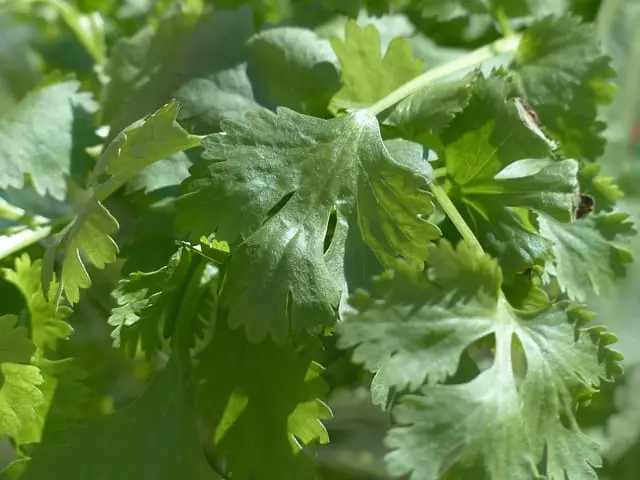Companion planting is a technique in which different plants are grown together in close proximity for mutual benefit. This practice has been used for centuries in agriculture and can be applied to growing spices as well. Companion planting can improve soil health, deter pests, enhance flavor, and increase yields, making it an important tool for spice gardeners.
Like crop rotation, companion planting offers spice growers both professional and amateur a number of potential benefits as we’ll see below.
Companion planting can improve soil health
One of the primary benefits of companion planting is improved soil health. Certain plants have the ability to fix nitrogen in the soil, making it available to other plants. For example, beans and peas are known to be good nitrogen fixers and planting them alongside basil, oregano, and thyme can provide those spices with the necessary nitrogen to grow healthy and strong.
Companion planting can minimize pests and disease
Companion planting can deter pests and prevent diseases. Certain spices such as basil and marigold emit strong scents that can repel pests and deter them from feeding on other nearby plants.
Companion planting can additionally help to reduce the spread of diseases by breaking the disease cycles and making it harder for them to establish and spread.
Companion planting can improve spice flavor
Another benefit of companion planting is enhanced flavor. Growing certain spices near each other can improve their flavor and make them more aromatic. For example, planting basil near tomatoes can enhance the flavor of both plants, as the basil can help to deter pests that are harmful to the tomatoes and the tomatoes can benefit from the basil’s natural insect repellent properties.
Companion planting can improve spice yield
Finally, companion planting can increase yields. By growing different spices in close proximity, you can take advantage of their growth patterns and maximize your yields.
For example, planting basil near parsley can help to reduce competition for resources and improve the yields of both crops.
In that regard, let’s take a closer look at spices (and herbs) that can benefit from companion planting as some are ones you can grow yourself.
Spices and herbs that can benefit from companion planting
Here are some common spices and herbs that benefit from companion planting:
- Basil: This herb is believed to improve the growth and flavor of tomatoes. It also repels pests such as mosquitoes and flies.
- Chives: Chives are a good companion plant for roses, as they help to deter aphids and other pests. They also have a positive effect on the growth of carrots, tomatoes, and strawberries.
- Cilantro: This herb helps to deter pests such as aphids and spider mites, and is also believed to improve the growth and flavor of brassica crops like broccoli and cauliflower.
- Dill: Dill attracts beneficial insects such as ladybugs and parasitoid wasps, which feed on pests. It also has a positive effect on the growth of cabbage and onions.
- Mint: Mint is a good companion plant for cabbage, as it helps to deter cabbage moths. It also has a positive effect on the growth of tomatoes.
- Rosemary: This herb has a positive effect on the growth of beans, carrots, and sage. It also helps to deter pests such as bean beetles and cabbage moths.
- Sage: Sage has a positive effect on the growth of rosemary, carrots, and cabbage. It also helps to deter pests such as cabbage moths and carrot flies.
These are just a few examples of the many spices and herbs that can benefit from companion planting. It’s important to keep in mind that not all plants will grow well together, and that the best companion plants for a given crop will vary depending on the growing conditions, soil type, and climate.
Final thoughts
Companion planting is a valuable tool for growing high-quality, flavorful spices while maintaining sustainable agriculture practices. By planting different spices together in close proximity, you can improve soil health, deter pests, enhance flavor, and increase yields. Whether you are a seasoned spice gardener or just starting out, incorporating companion planting into your gardening practices can help you achieve the best results.
Check out my article called How To Grow And Harvest Your Own Spices to learn more about growing your own spices and herbs at home.

